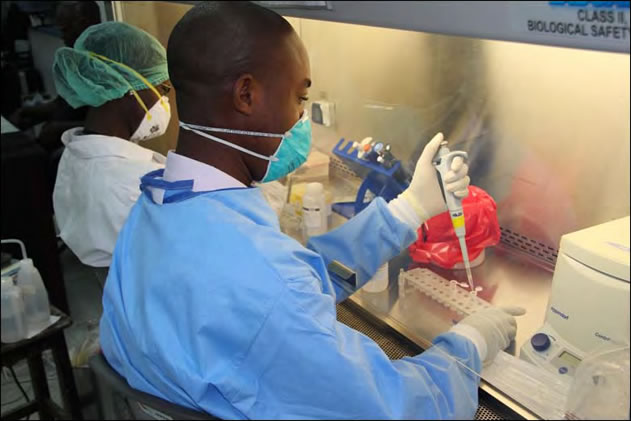
Lab scientists call of strike
The Ghana Association of Medical Laboratory Scientists (GAMLS) has called off its nationwide strike, effective Monday, June 1.
President of GAMLS, Mr Adu Abudu Rahamani, said the decision followed a meeting between the GAMLS and the Parliamentary Select Committee on Health, which yielded goodwill and assurances from the Committee.
The meeting was attended by GAMLS, the Ghana Medical Association (GMA) and other stakeholders in the health sector
Medical Laboratory Scientists at the Komfo Anokye Teaching Hospital (KATH) in May embarked on an industrial action to press home their demands for the removal of two medical doctors – Hematologists - appointed to work at the lab unit of the Hospital.
This resulted in a nationwide strike by the GAMLS in solidarity with the KATH wing of the Association.
According to Mr Rahamani, the Association called off the strike based on assurances from the parliamentary select committee on health to take charge of their concerns and ensure that they were fully addressed.
Read also: HeFRA on why specialists should head laboratories in tertiary hospitals
“The meeting with the parliamentary select committee on health was on neutral grounds and we have a lot of trust in them to look at the issues, put things right and resolve the issue once and for all,” he said
He said while they had called off the strike, the leadership of the Association would continue negotiations with the Parliamentary Select Committee on Health to ensure that its petitions were addressed.
“We are also hoping the institutional heads, the Medical Superintendents and the Chief Executive Officers and Directors of Public Health facilities will not do anything to jeopardize the new harmony in the system,” he stressed.
Commenting on a letter from HeFRA to the Ghana Medical Association (GMA) on who should head public laboratories, Mr Rahamani said HeFRA’s position on the matter was unjustifiable, wrong and against HeFRA Act.
“If you take the HeFRA Act, there is nothing that states that laboratory physicians are supposed to head tertiary laboratories. In fact, in the Act there is nothing like basic, primary and tertiary laboratory,” he said.
Mr Rahamani said the HeFRA Act clearly stated that a Medical Laboratory Scientists with five years’ experience was qualified to manage a medical laboratory and nothing else.
He said as per the Act, HeFRA needed to work with the Allied Health Professions Council since the Council was the sole regulators of health human resource while HeFRA regulated the facilities and had no authority to take such decisions.
